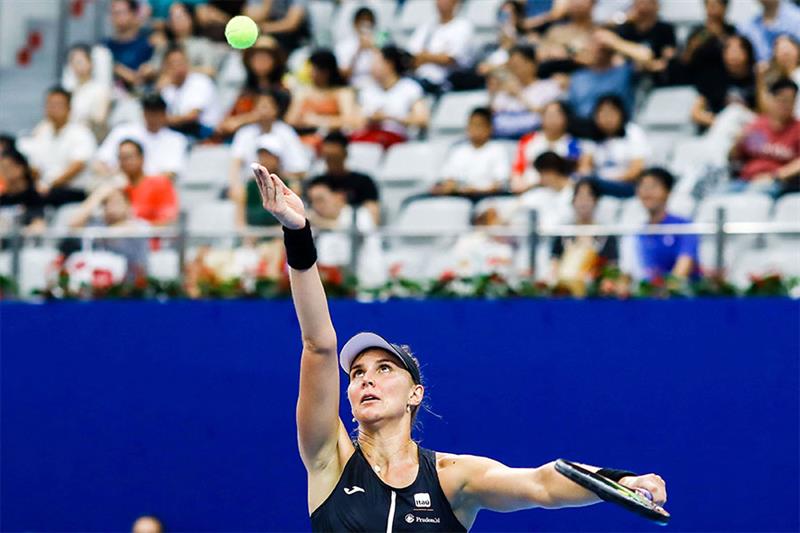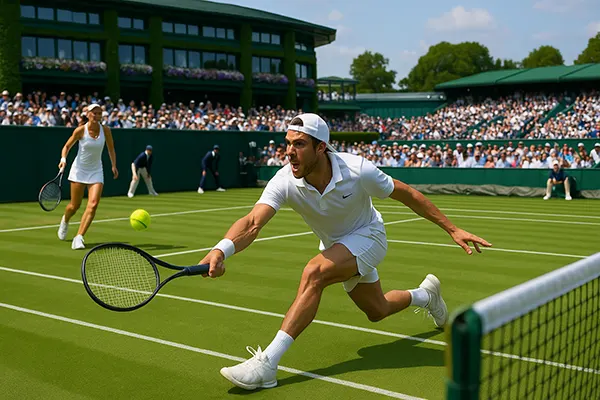In the world of professional women’s tennis, a sense of unity is not just a lofty ideal but a tangible movement, with players like Iga Swiatek at the helm advocating for substantial improvements within the Women’s Tennis Association (WTA). Swiatek, the young luminary whose prowess on the court is matched by her leadership off it, is vocalizing the collective aspirations of her contemporaries. These athletes are not merely competitors; they are allies in the pursuit of a sport that values their contribution and fosters their growth. This article delves into the current climate of women’s tennis, the solidarity among players, the specific improvements sought from the WTA, and how this united front is reshaping the future of the sport for the better.
The Call for Change: Issues on the WTA Horizon
Women’s tennis has reached a pivotal juncture, with players uniting for change that extends beyond baseline rallies and match points.
Elevating Tournament Standards
One of the pressing issues highlighted by players like Swiatek is the need for improved tournament standards. This encompasses everything from the quality of playing surfaces and practice facilities to the accommodations and logistical arrangements provided at events. Players are seeking a uniformity of standards that ensures every tournament, irrespective of its size, offers a professional environment conducive to peak performance.
These improvements are not only about comfort; they are about respect and the recognition of the athletes’ commitment to their craft. Ensuring consistent standards across events signals to players that their welfare is a priority.
The push for betterment also extends to prize money. Disparities in earnings between smaller and larger tournaments, and compared to their male counterparts, remain a hot-button topic. There is a call for a re-evaluation of the distribution of prize money to better reflect the athletes’ stature and the sport’s revenue.
A Unified Voice for Player Welfare
The conversation around player welfare is gaining momentum, with an emphasis on mental health support and injury prevention. The WTA is being urged to institute comprehensive support systems for players, addressing the pressures unique to professional tennis.
On this front, athletes are calling for a circuit that allows for proper rest and recuperation, suggesting a reassessment of the tennis calendar to reduce the risk of burnout and injury.
Striving for Equality and Representation
Equality and representation are at the core of the players’ appeals to the WTA, echoing the broader societal push for gender parity.
Bridging the Gender Pay Gap
The gender pay gap in sports has long been a contentious issue. Women’s tennis is often hailed as a leader in bridging this gap, yet players feel there is still a considerable way to go. The equal pay debate is multifaceted, encompassing not just the prize money but also sponsorship and media coverage.
Players like Swiatek are advocating for measures that ensure women’s tennis receives investment and attention commensurate with its popularity and competitive appeal.

Advocating for Enhanced Marketing and Promotion
Marketing and promotion are vital to the sport’s growth, and the athletes are pushing for the WTA to be more proactive in these areas. A strong marketing push can elevate the sport’s profile, attract new fans, and open up more lucrative sponsorship deals, which in turn can feed into the prize money and funding for player development programs.
Amplifying Players’ Profiles
The women on the WTA tour are not just athletes; they are compelling personalities with inspiring stories. There is a call for the WTA to leverage these narratives to amplify players’ profiles and foster a deeper connection with the audience.
Players are urging for a collaborative approach to marketing, one that involves athletes in the narrative-building process, ensuring authenticity in how they are portrayed to the public.
With the right marketing strategies, women’s tennis can significantly expand its reach, creating a robust platform that benefits all stakeholders – from the players to the fans, and the association itself.
The Role of Leadership in the Path Forward
Leadership within the ranks of players like Swiatek is instrumental in steering the discourse towards constructive changes in the WTA.
Solidarity Among Players
This newfound solidarity is a testament to a generation of players ready to shape the future of their sport. It’s a movement defined by collaborative efforts and mutual support, transcending the competition to build a better sport for future athletes.




